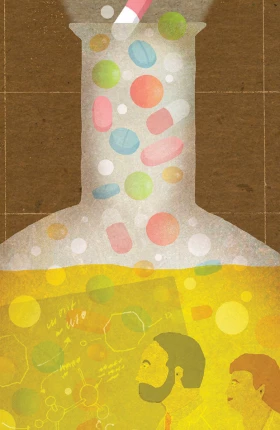BCG’s study on R&D outliers was featured in the September edition of Nature Reviews Drug Discovery .
R&D is the lifeblood of the biopharmaceutical industry, the ultimate source of the economic value that the industry creates. Little wonder, then, that the continuing evidence of a major decline in R&D productivity has generated a sense of crisis—not just in R&D circles but in the industry as a whole.
Consider some sobering numbers: from 2000 through 2010, the market value of the top 20 biopharma companies declined by more than 30 percent—a loss of an astounding $720 billion. This loss wasn’t the product of a decline in sales; in fact, the net income of these companies grew by 140 percent. Rather, it was due to the vertiginous drop in industry price-to-earnings multiples—a sign that investors had substantially reduced their expectations for the industry’s future prospects.
The powerful market and institutional forces that are driving the decline in R&D productivity are familiar: more complex science, higher hurdles on unmet need, tougher competition, pricing and access pressures, and tighter regulation. All these forces have increased the obstacles to success in R&D and led to a commensurate decrease in returns.
Industry experts have proposed a variety of solutions—ranging from frequent calls to reengineer the R&D value chain to the radical suggestion that big pharma companies get out of the R&D business
In order to understand better the nature of the industry’s R&D problem, it pays to look more closely. Although, on average, the ability of biopharma R&D to create value has declined, there is in fact a remarkable variation in R&D performance across the industry. During the past year, The Boston Consulting Group has been studying these wide differences in performance. Our goal has been to identify the characteristics that differentiate those companies in which the R&D organization is making a positive contribution to value creation from those in which R&D is actually destroying value. We call the successful organizations outliers and believe that they offer fresh insights about the true nature of the problem facing biopharma R&D, as well as the outlines of a potential solution.









